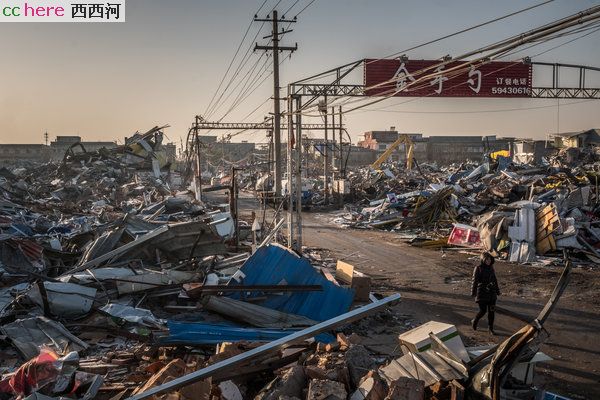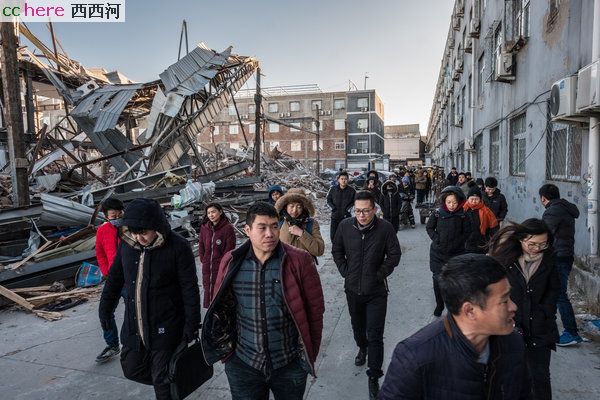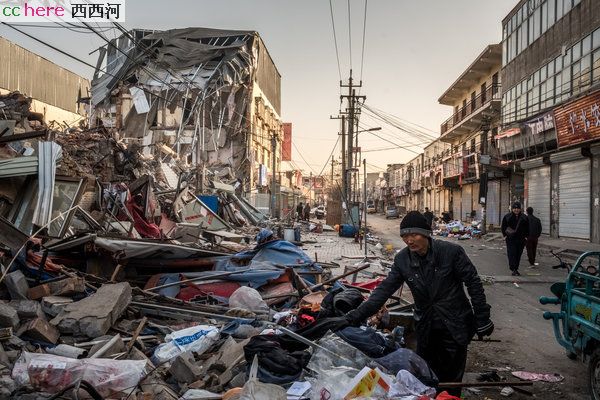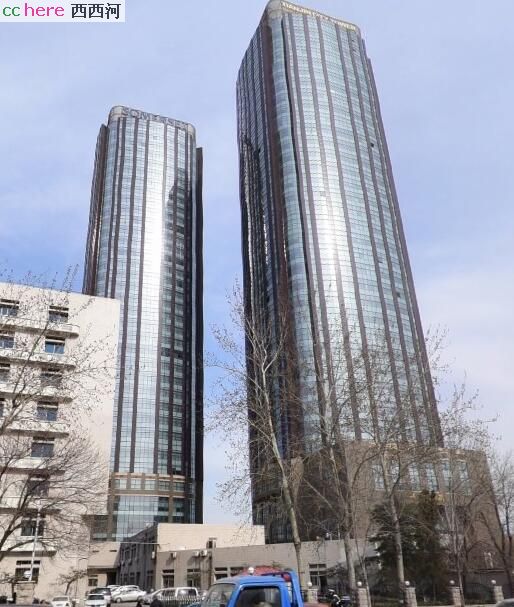主题:苛政猛于虎:环保大跃进+清理低端人口 -- 海峰



那用打火机点燃的应该不是。那准定不符合北美防火标准,估计国内的也应该不符合。那个东西在外墙 ,有些地方还可以。内墙准定不可以。
- 待认可未通过。偏要看
要用“一切历史都是当代史”,这个框架去理解。
青年们没有经历过文革,也不想实际经历文革。那么怀哪门子旧呢?自然是对当代不满的缘故。
小时候铺设供暖管道,就往管道外浇筑包覆黄色的塑料泡沫。小孩子嘛,自然忍不住把漏出的边角料拿来点。烟很大很臭,当然没有包装的泡沫塑料“好玩”。包装的是聚苯乙烯是吧
那年上海火灾就是安装隔热层的吧
现在搞的是煤改气,又不是煤改电!核电站只能发电,又不能产气,难道说还要再折腾一回气改电?
我应该是西西河,最早讽刺包子帝的,讽刺他说伪君子岳不群。
真是没有想到,包子帝简直就是隋炀帝,杭州G20峰会疯狂挥霍,连菜单都是丝绸的。然后是环保大跃进,驱赶低端人口大跃进。
环保大跃进,华北的冬天,不知道有多少体弱的老人、孩子和病人会被冻死。
这个时候,还有马屁组成员替包子帝歌功颂德,真是没有良心的一群东西。
力挽狂澜,把中国从89年的坑里拉出来了。我排下序列吧:
毛伟人
江长者
袁宫保
。。。。
蒋光头
。。。。
胡蟹帝
习梦帝
2013年8月22日,薄熙来案在济南市中级人民法院一审公开开庭审理。2013年9月22日,法庭对被告人薄熙来以受贿罪、贪污罪、滥用职权罪依法判处刑罚,数罪并罚,决定执行无期徒刑,剥夺政治权利终身。
https://baike.baidu.com/item/%E8%96%84%E7%86%99%E6%9D%A5/181299?fr=aladdin
-----
习梦帝好无辜啊,皇上在宫中,估计在品味花蕊夫人的艳词,“妾在深宫那得知?”
Why Parts of Beijing Look Like a Devastated War Zone
2
By CHRIS BUCKLEY
November 30, 2017
Vast swaths of Daxing, a district in southern Beijing, are reminiscent of war zones, with entire city blocks demolished.
Bryan Denton for The New York Times
BEIJING — At night on the edges of Beijing, the migrant workers who keep China’s capital city fed, cleaned, swept and supplied wait in fear of a knock on the door that could ruin their hopes of finding a better life.
Far from the skyscrapers and monuments downtown, squads of police and safety inspectors have been scouring the city’s sprawling outer neighborhoods crowded with laborers from poor rural China. Those living or working in buildings deemed to be dangerous or illegal are ordered to vacate, sometimes with just a few hours’ notice, before homes, shops and even whole factories are demolished.
Tens of thousands have already been uprooted in the city’s most aggressive drive against migrant neighborhoods that people can recall; many more migrants are wondering how much longer they can remain in their homes, or even in Beijing.
The city government says they are being pushed out for their own safety, after a recent deadly fire in a migrant settlement. But many migrants say the government is using the fire as an excuse to ramp up efforts to drive them out and ease pressures in a city whose population has already soared beyond 20 million people.
“Suddenly in one night my livelihood was destroyed, as if I’d been attacked by bandits, but this was done by the government saying they care for us,” said Zhang Guixin, a 38-year-old woman from the central Chinese province of Henan whose fruit and vegetable stall was demolished.
“I’ve never seen anything like this in eight years in Beijing, nothing,” Ms. Zhang said, standing beside the flattened remnants of her stall in Xinjian Village, a migrant neighborhood in southern Beijing where the clearance has so far been most intense. “Beijing doesn’t want us. We’ll have to go back to our village.”
Daxing’s streets have the feel of an urban area destroyed by conflict. The ground vibrates as large construction vehicles outfitted for demolition work roll down abandoned streets.
Bryan Denton for The New York Times
A manager of a clothing factory and showroom looked on as workers loaded up trucks with goods after residents in the Daxing district were told that they had days to leave the area, which is slated to be demolished by the government for unknown future projects.
Bryan Denton for The New York Times
A building in the Daxing district was demolished on Tuesday.
Bryan Denton for The New York Times
The expulsions have been in jarring contrast to the vision that China’s president, Xi Jinping, laid out in October when he won a second term as Communist Party leader and vowed to build a prosperous society of equals. The drive against the settlements has left migrants abruptly homeless in midwinter and asking why leaders of the party founded to represent the poor laboring masses have turned so harshly on them.
“Xi Jinping is from our home,” said Dang Hui’e, a migrant from the northwestern province of Shaanxi, where Mr. Xi spent part of his youth. Ms. Dang said she was ordered to move out of her apartment with three days’ notice while caring for her 9-month-old baby.
“Does this country have any laws?” she said. “The law is laid down by you, you’re the president, so what’s the good of the laws that you lay down?”
Xinjian Village was teeming with migrant workers and their children until two weeks ago. Now half the area is a field of rubble and debris from demolished buildings, and the other half is nearly empty and waiting for the wrecking crews. Remaining inhabitants packed their belongings into suitcases and boxes.
In the buildings they had vacated, bowls of half-eaten instant noodles and abandoned toys testified to lives suddenly disrupted.
“It’s happened so quickly, it’s hard to believe that this was my home,” said Wang Guowei, a migrant in his 20s from Henan who was dragging a suitcase along a street strewn with trash and rubble. He said he had found a new room in Beijing with the help of his employer, a car parts maker.
Residents of an apartment block in southeastern Beijing, who were given just 48 hours to vacate, walked en masse to the local government office to demand that their rent be reimbursed.
Bryan Denton for The New York Times
An elderly man packed up his belongings as he and his wife prepared to leave their home in Beijing’s Daxing district.
Bryan Denton for The New York Times
Security guards stopped bystanders from approaching the demolition of a small factory in the Daxing district of southern Beijing on Tuesday.
Bryan Denton for The New York Times
“I’m not sure how long I can stay,” he said. “Nobody is sure how long we can stay anywhere.”
A similar scene is being played out in dozens of migrant neighborhoods across the city. Migrants said they felt as if they were being treated as pests by Beijing, which already excludes them from the education, health care and housing benefits provided to locals with permanent resident permits.
“We’re all Chinese, this is our capital too, the people’s capital,” said Shi Yongxiang, a ruddy middle-aged cleaner from northwest China living near Banbidian, a village on Beijing’s northeastern edge that is home for thousands of migrants.
“How can Beijing get by without migrant workers?” Mr. Shi asked as two curbside vegetable hawkers nodded in sympathy. “We do every job that the locals won’t do.”
The migrants tend to live on the edge of Beijing in stretches of three-, four- and five-story apartment buildings that are often cramped, but not dilapidated. The streets hum with activity from supermarkets, cheap diners, hairdressers and cellphone stores.
Local officials have tolerated, inspected and taxed these buildings for years until the current crackdown, when they suddenly declared them illegal for being fire hazards, or for lacking permits.
“They never said it was illegal when it was built, or when they came to inspect it, or when we paid our deposits, but now we’re being told to move without any say,” said Luo Haigang, a 42-year-old driver from central China who was scrambling to vacate his one-room apartment after being given two days’ notice.
Workers watched as equipment was removed from their factory, which was ordered demolished.
Bryan Denton for The New York Times
A modern development was visible through the remains of an older building being demolished near the Fourth Ring Road in southeast Beijing, where residents of older apartment blocks, many of them blue-collar workers and migrant laborers, are being evicted on short notice by the Beijing government.
Bryan Denton for The New York Times
Cars jammed a driveway as residents of an apartment complex in Beijing who were given just 48 hours to leave their homes scrambled Thursday to move their belongings.
Bryan Denton for The New York Times
The Beijing government has said the clearances were urgently justified by a fire in a migrant worker apartment in Xinjian Village that killed 19 people, including 17 from other parts of China. After that, officials hastily listed 25,395 safety hazards across the city, and said they had to act fast “to prevent the tragedy recurring.” The city party secretary, Cai Qi, ordered a 40-day clearance campaign to rid the city of safety hazards in migrant neighborhoods.
“Starting from today, demolish what can be demolished, don’t wait until tomorrow,” Wang Xianyong, a district official in southern Beijing, said in a speech to officials that leaked onto the internet. “If it’s demolished today, then won’t you be able to get a good night’s sleep?”
Initially, city leaders ignored the complaints from the displaced migrants. But as images of expelled workers dragging their belongings along streets on freezing winter nights appeared on social media, they ignited an unusually strong public backlash. Even some state-run news outlets have chimed in to criticize the rushed demolitions.
“They are people of flesh and blood, the grass-roots laborers who keep Beijing, this huge city, running normally, and they deserve the respect and understanding of every one of us,” said a commentary on the website of China’s main state broadcaster, CCTV.
Charity groups have also sprung up to help displaced workers.
The images of homeless workers “made me think of those scenes from movies of Jews being expelled without anyone saying a word,” said Liu Bowen, a 35-year-old professional photographer in Beijing who helped set up a service to find housing for displaced migrants. “I thought we should speak up.”
A scavenger looked through debris from demolished buildings in Beijing on Tuesday.
Bryan Denton for The New York Times
In essays and petitions, critics of the campaign accuse Beijing of seizing on the fire as an excuse to accelerate expulsions that have until now failed to slow the city’s growth.
“The bodies of the dead were not cold, and yet some people in this fine capital cracked the whip to expel the ‘low-end population,’” said one of the petitions.
City officials denied calling the rural laborers a “low-end” group, and suggested critics were trying to stir up social divisions.
But the city government has also spent years trying to reduce Beijing’s population of low-income migrants, using demolitions and sweeping inspections of residency documents to force them out. They have warned that Beijing was overstrained by a population explosion that has sent its population soaring from 10.9 million in 1990 to almost 22 million in 2016.
Of last year’s figure, 8.1 million were migrants from other parts of China — mostly menial laborers but also white-collar workers, some of whom have also been displaced by the recent removals.
The campaign intensified in 2014, when President Xi demanded that Beijing deal with its bloated population. The city snapped into action, moving factories, schools and markets out of the city to force low-paid migrants to leave.
Beijing has set a goal of limiting its population to 23 million residents by 2020, while also making room to attract more higher-paid, university-educated professionals.
Despite such efforts, officials have so far failed to deter migrants from settling in the city, largely because Beijing still relies on them to be its cooks, couriers and cleaners.
“They want the horse to run, but they don’t want to feed it grain,” said Zhang Yonghui, a worker in his 30s from Shaanxi who moved to Beijing a few months ago after failing to find work in coal mines. “They’ll get rid of us for a while, maybe for a year, but then quietly they’ll let us back because they need our labor.”
重大突发!天津河西区城市大厦38层今早突发大火,截至目前,已有11人送医院救治,其中6人经抢救无效死亡。
---------------
这次可不是违建。36层的写字楼。

天津城市大厦隶属于天津隆融置业有限公司,坐落于天津繁华的金融中心 - 友谊路,毗邻市内主要的商业区(南京路和小白楼)、工业区(西青开发区、天津经济技术开发区)、梅江高档住宅区以及天津滨海国际机场,交通十分便利。 36层的高品质办公楼宇与另一座36层的服务式公寓及裙房商业部分共同组成大型综合性地标建筑。 城市大厦简洁的外部线条以及明快的玻璃外墙设计,均体现了巧夺天工的现代化设计。城市大厦坐揽城市盛景的同时,项目内部也配备了最高端的现代化设施。国际化的资深物业管理公司保证了最高品质的办公和购物环境。
上次大兴火灾赶低端人口,这次高端写字楼着火了,咋赶人?特别是大家对火灾死人好像格外重视,怎么死都不能死火灾!红中犯难了?他可不是之江新军。每届局委都有隐藏的,我看他脑袋上红光焕发。
不知道为什么,这两年杨广吹突然多了不少。吹得杨广离千古一帝就差一步,这就有点离谱了。
文治如科举官制,武功如破吐谷浑征高句丽,先不分析。就拿修大运河来说,岑仲勉的评价就比较客观:在炀帝之前,如曹操、邓艾、刘裕、对河、淮交通,均尝施力,炀帝之后,如唐如宋,亦须时常浚汴,始能利用,充其量,炀帝不过加工较完满之一员。其过度推崇之者,一方面由昧于水利之历史,别方面则根于事经创作便可享成之依赖心理。秦始皇因旧有基础而筑长城,限戎马之足者垂千余年,隋炀不可相提并论也。
但即使这样,拿11和杨广相比,也是对杨广极大的侮辱。也许两者在好大喜功,败家害民的程度上是比较类似。但杨广多少还是做出点实实在在的成绩和功业的。11有啥?定向反腐就不要拿出来好吧,沙特定向反腐力度还更大呢。
市委市政府做出深刻检查,区长撤职,基层问责,相关责任人移送司法机关处理。
这都是老一套了。反正最倒霉的肯定是基层。这年头谁干社区谁**,掉块砖倒个墙没准都得双开吃牢饭。体制内的低端人群,没办法。
习本来就是一个草包。
现在是习的本色出演。怪不到李的头上。
忙总一起说过,有些红二代,把人才当奴才。真正的人才,都不屑与之为伍。
以前不明白他说的是谁。现在看明白了,习的周边,奴才成群,但是没有任何的人才。以习的地位,真是不可思议。
做到这种地步,也算是孤家寡人了。
有了主席推行思想解放之壮举,国人民智已开,思想解放。想为蠢行辩护?现在既骗不了人心,也挡不住人嘴的双关妙语。